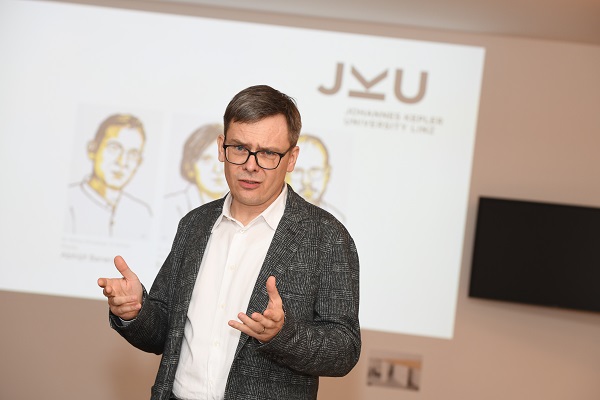The new lecture series "Nobel erklärt" kicked-off at the Kepler Salon and explained the Nobel Prize in Economics.

In cooperation with the Kronen Zeitung, JKU researchers and scientists explain this year’s Nobel award-winning research. The Nobel Prize in Economics went to researchers Esther Duflo, Abhijit Banerjee and Michael Cremer for their experimental approach to alleviating global poverty.
In order to talk about the Nobel laureates’ groundbreaking research approach, JKU expert René Böheim (Institute of Economics, JKU) first spoke about why countries are poor and what can be done: "The Nobel Prize winners broke with the research tradition and instead of a technocratic approach, they chose a local, experimental approach."
After the presentation, an open discussion addressed questions about different types of collaboration efforts for development assistance and the effect of donations.
Upcoming Dates
November 28: Prof. Achim Hassel talks about the lithium-ion battery and why this particular research won a Nobel Prize in Chemistry. (Award winners: Akira Yoshino, M. Stanley Whittingham, John Bannister Goodenough)
December 5: Prof. Josef Donnerer focuses on the Nobel Prize for Medicine and how cells react to oxygen. (Award winners: William G. Kaelin Jr.; Gregg L. Semenza; Peter J. Ratcliffe)
December 12: JKU Vice-Rector Alberta Bonanni talks about the Nobel Prize in Physics and how exoplanets and sun-like stars behave. (Award winners: James Peebles; Michel Mayor und Didier Queloz)
Admission free, every Thursday at 6 pm in the Kepler Salon (Rathausgasse 3, 4020 Linz).








